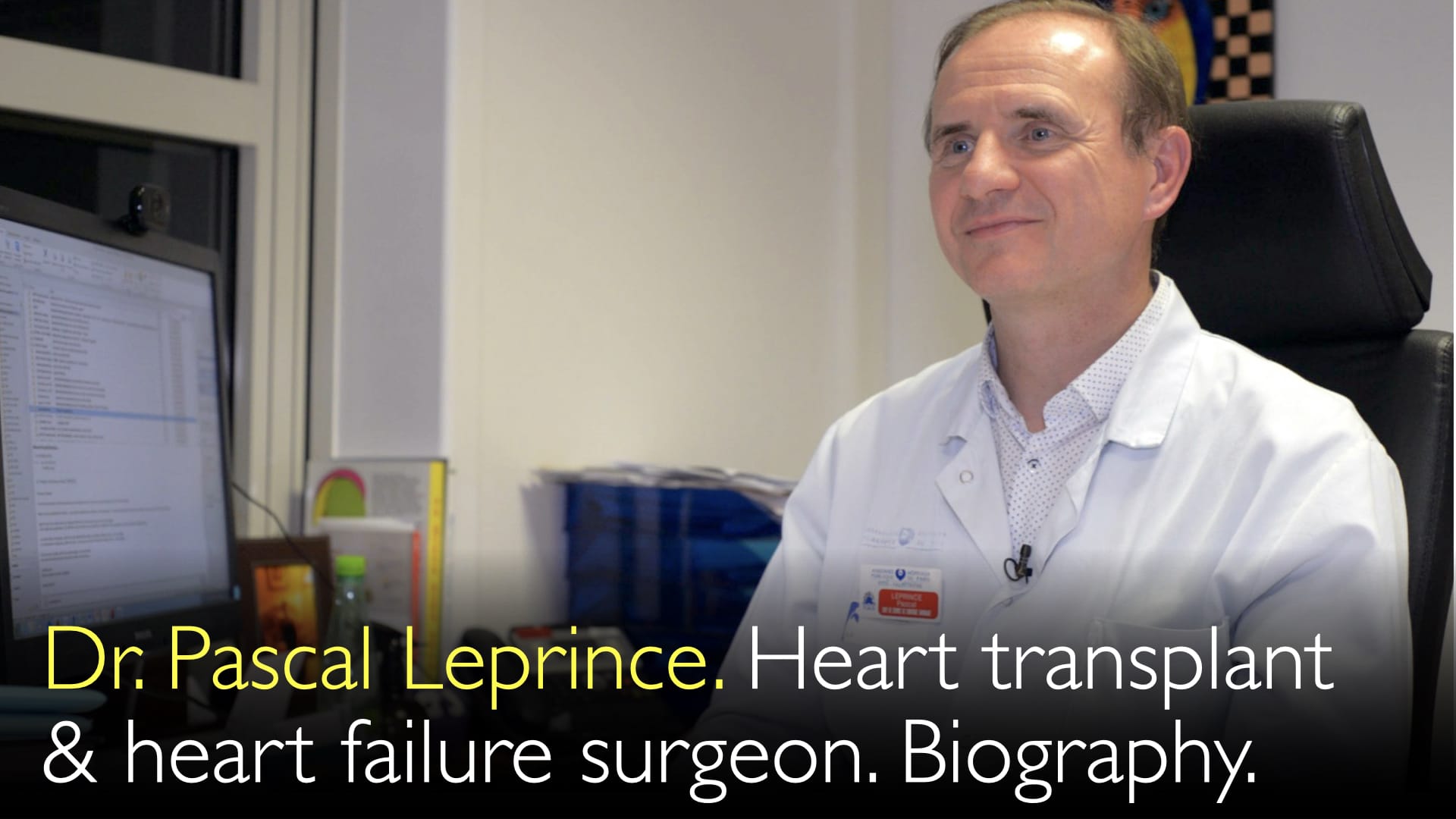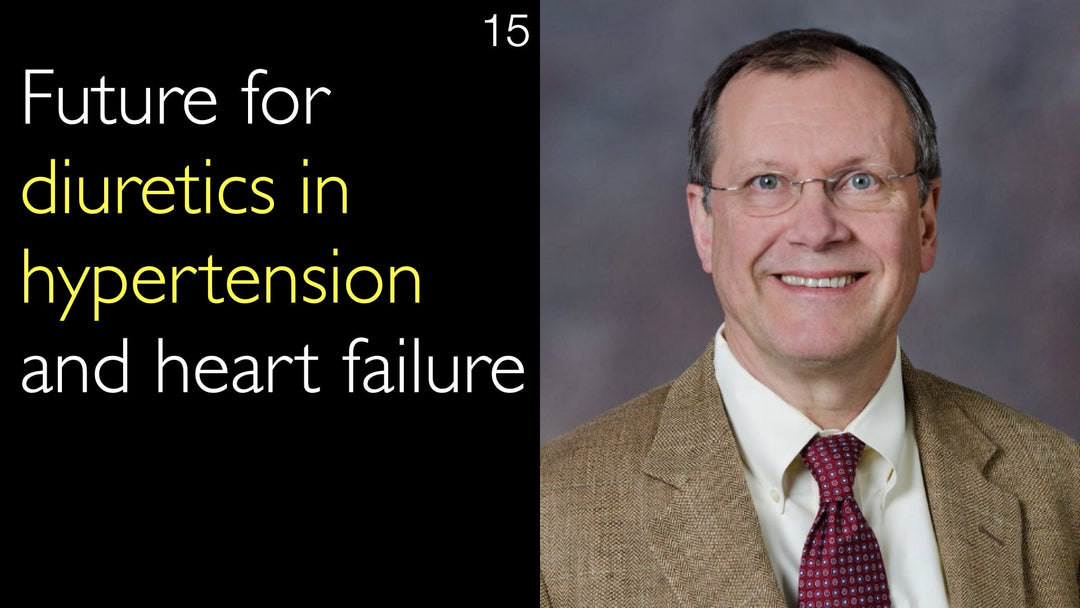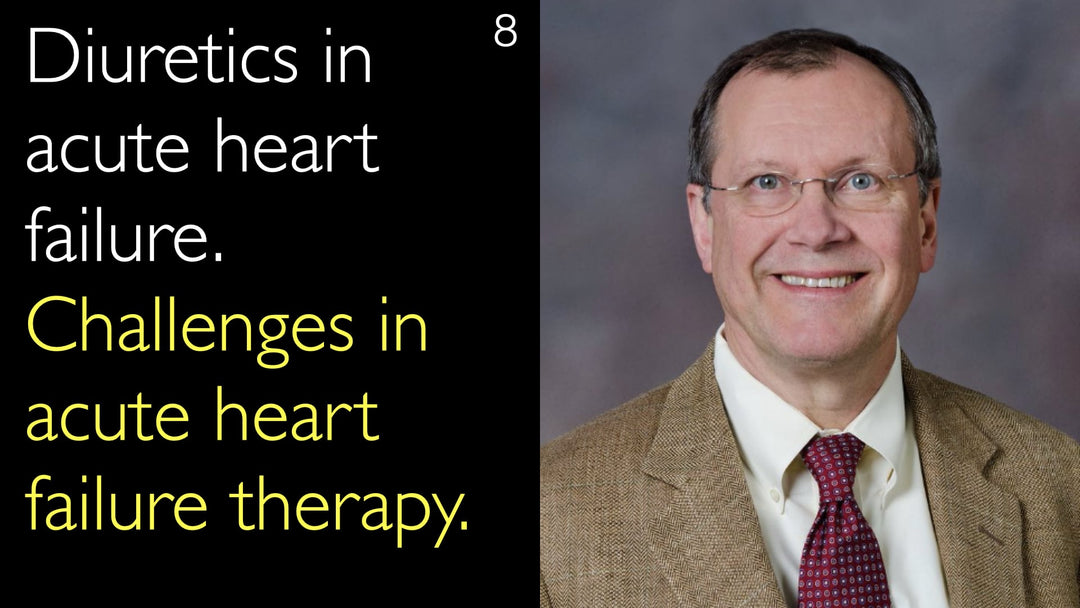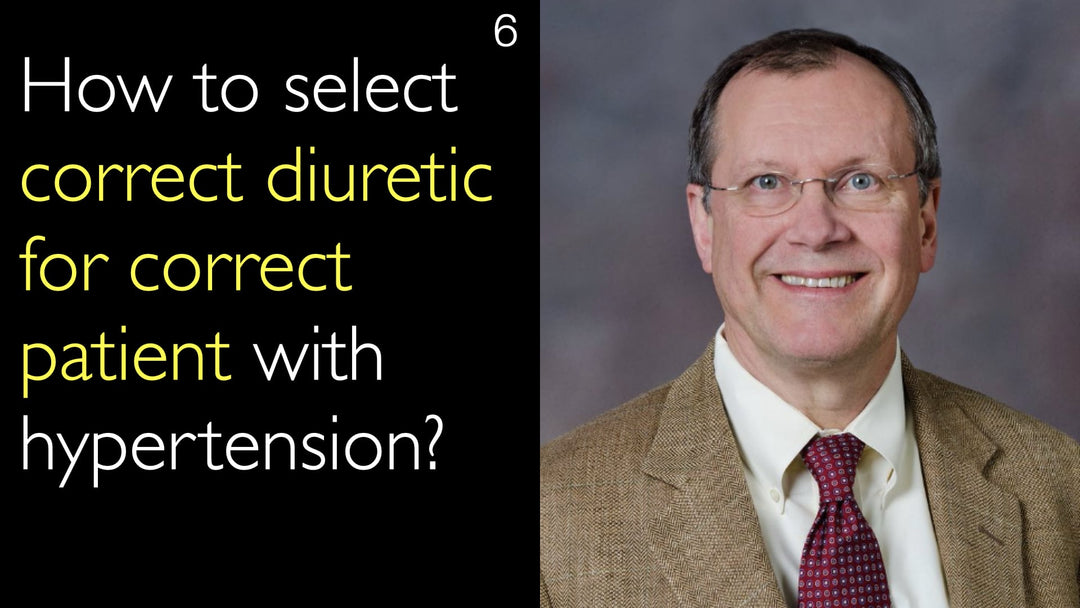Leading expert in heart transplantation and advanced heart failure treatment, Dr. Pascal Leprince, MD, explains the critical need for improved care coordination and future directions in therapy. He emphasizes that better organization of heart failure specialists is the first major improvement needed, followed by advancements in LVAD technology, heart transplantation, and total artificial hearts. Dr. Leprince also highlights the urgent need for better treatment options for elderly patients with advanced heart failure, where quality of life is the primary goal.
Future of Advanced Heart Failure Treatment: LVAD, Transplantation, and Total Artificial Heart
Jump To Section
- Heart Failure Care Coordination
- LVAD vs Heart Transplantation
- Immunosuppression Future
- Total Artificial Heart
- Elderly Heart Failure
- Full Transcript
Heart Failure Care Coordination
Dr. Pascal Leprince, MD, identifies a major gap in advanced heart failure treatment: the lack of a coordinated, multidisciplinary team. He explains that the current system often fails patients, who may see a family practitioner, a town cardiologist, and a hospital cardiologist without any central coordination. This fragmented approach means comprehensive treatment options like cardiac resynchronization therapy, LVAD, or transplantation are not discussed early enough.
The ideal model, according to Dr. Leprince, places a dedicated heart failure cardiologist at the center of a patient's care. This specialist would organize all other "satellite" physicians, including electrophysiologists and cardiac surgeons, to ensure continuity and the best possible treatment pathway. Dr. Pascal Leprince, MD, notes that in France, heart failure cardiology is not yet a formal diploma, which is a significant barrier to implementing this optimized care structure.
LVAD vs Heart Transplantation
For patients with advanced heart failure no longer responsive to medication, Dr. Pascal Leprince, MD, outlines the two primary treatment options: Left Ventricular Assist Device (LVAD) implantation and heart transplantation. He notes a geographical variation in their use, with some countries implanting more LVADs and others, like France, performing more transplants. A critical unanswered question remains: which treatment is truly best for which patient?
Dr. Leprince strongly advocates for a randomized controlled clinical trial to directly compare LVAD implantation with heart transplantation. He points out that LVAD technology has seen huge improvements, and its major advantage is immediate availability without a waiting list. However, complication rates can be higher than with transplantation. A rigorous scientific study is essential to guide treatment decisions and improve long-term patient outcomes for advanced heart failure.
Immunosuppression Future
The long-term success of heart transplantation relies on immunosuppressive medications to prevent organ rejection. Dr. Pascal Leprince, MD, discusses the future of this critical aspect of post-transplant care. He expresses uncertainty about the development of new, more effective immunosuppressive drugs, noting that few novel agents are coming to market.
For over 15 years, the field has discussed personalizing immunosuppressive therapy for each transplant patient, a goal that remains elusive. Dr. Leprince hopes that better, more personalized immunosuppressive regimens will eventually be developed to improve the longevity and quality of life for heart transplant recipients. This remains a key area for future research and development in advanced heart failure treatment.
Total Artificial Heart
Dr. Pascal Leprince, MD, addresses the challenging patient population with biventricular heart failure, where both sides of the heart are failing. These patients are not candidates for a Left Ventricular Assist Device (LVAD) and currently rely on the SynCardia Total Artificial Heart (TAH) as a bridge to transplantation. While effective, Dr. Pascal Leprince, MD, notes that the quality of life on this device is not sufficient for it to be considered a destination therapy.
The future lies in the development of next-generation total artificial hearts. Dr. Pascal Leprince, MD, highlights the Carmat Total Artificial Heart, which has been implanted in patients in France, Prague, and Astana during clinical trials. He confirms that experimental treatments with this device are planned to restart in France. The arrival of these new, improved TAH devices could offer a viable long-term solution for patients with terminal biventricular heart failure.
Elderly Heart Failure
A significant portion of the heart failure population is elderly, and Dr. Pascal Leprince, MD, explains that their treatment options are severely limited. Patients over the age of 75 are generally not candidates for heart transplantation or LVAD implantation due to higher associated risks. The cut-off is approximate, but after this age, treatment is typically restricted to medication and cardiac resynchronization therapy.
For this demographic, Dr. Pascal Leprince, MD, states that the treatment goal shifts entirely to improving quality of life rather than focusing on survival. He emphasizes the urgent need for better heart failure medications specifically tailored to older patients. The future of advanced heart failure treatment must include developing therapies that allow elderly individuals to live their final years with the best possible quality of life.
Full Transcript
Dr. Anton Titov, MD: You are a leading heart transplant surgeon. You deal with advanced heart failure treatment. There are a lot of changes in heart failure treatment and heart transplantation. How do you see the future for heart transplantation and the advanced heart failure treatment?
Dr. Pascal Leprince, MD: I would hope that in many hundred years from now, we will not require heart transplantation anymore. Because we will understand everything about the disease, about heart failure. We will be able to prevent coronary artery disease. We will cure coronary artery disease before the disease comes to bad heart failure. Medical second opinion is important. That is the future in heart transplantation and heart failure.
Before that, we will have to face all the treatments. I think the first improvement we can bring to heart failure is not a real medical improvement. Neither is it a device improvement. This is human organization improvement. This is something that is already happening now in the US. That is different in Europe. It is still quite tough.
We need to have better medical doctors who take care of heart failure. They are cardiologists. But not only hospital cardiologists but also a town cardiologist, family practitioners, interventional cardiologists, heart failure cardiologists. We don't even have dedicated heart failure cardiologists in France. In France, this is not a real diploma. We do have good heart failure cardiologists here. But they are supposedly general cardiologists by diploma.
We have to have a heart failure cardiologist, electrophysiologist, cardiac surgeon, of course, nurses, intensive care nurses on a team. All these patients have to work together to bring the best treatment to the patient. This is not good. It is to have a patient who will see the family practitioner and who is getting pills for treatment. Then the patient with heart disease will go to the town cardiologist. He will get other pills.
Then the patient will get to the hospital and will get maybe other pills. Or maybe a patient will get a cardiac resynchronization. But no-one will speak to the patient about all treatment options. Then the patient year after year is getting worse and worse. Finally, a patient with heart failure will go to either mechanical circulatory support, LVAD, or transplantation. But it will be too late.
I think this is not the correct way to organize public health. Lack of continuity of care, yes. But this is very important. We want to get continuity of care. The patient has to have a central person who is going to organize all the "satellite" physicians. Satellite physicians are the surgeon. The electrophysiologist, other medical doctors around the heart failure cardiologists. Heart failure cardiologist is the main person to manage heart failure.
We do have to organize heart failure treatment the best way we can. We should and we could improve the care of the heart failure patient by doing that. Then let's look at what is going to happen with the cardiac transplantation.
Dr. Anton Titov, MD: You have to remember that we do have to treatment for advanced heart failure. When the patient is no longer stabilized with medication when the patient is not stabilized with cardiac resynchronization. We do have two treatments for advanced heart failure. We have mechanical circulatory support devices, LVAD, mainly. LVAD is a Left Ventricular Assist Device.
Dr. Pascal Leprince, MD: We have heart transplantation. In some countries, there are more implantations of LVAD devices than there is heart transplantation. In France, we do have more heart transplantation than LVAD device implantation. It depends on the rate of cardiac transplantation in the country. But we still don't know what is the best treatment for the patient with advanced heart failure. Medical second opinion is important.
We still need a randomized controlled clinical trial to look at that question. We had a proposal for such a study many years ago. It didn't work out. But I think we have to come back to comparing LVAD implantation with heart transplantation. Because we have a huge improvement in LVAD treatment. Medical second opinion is important. I think we should come back to science with a randomized controlled clinical trial.
We should be improving cardiac transplantation and LVAD. Because the main problem of heart transplantation is that you have to wait for an organ to be available. Then you will get immunosuppressive medication. For LVAD, I would say the rate of death after the LVAD surgery is similar to transplantation.
Dr. Anton Titov, MD: On the other hand, what is good with LVAD? You don't have to wait. You have the LVAD device on the shelf. What is not good about LVAD?
Dr. Anton Titov, MD: The rate of complications with LVAD is a bit higher in comparison to heart transplantation. But we don't have the long-term patient outcome data available for the LVAD in comparison to heart transplantation.
Dr. Pascal Leprince, MD: We still have to look at that. Hopefully, in the coming years, we will get some randomized clinical trial helping us to choose the best treatment for each patient with advanced heart failure. I think that is very important.
Maybe we will get better immunosuppressive medications. I'm not sure, because not many new immunosuppressive medications we can see coming onto the market. But hopefully, we will. We were speaking about personalizing medical treatment, immunosuppressive treatment for heart transplant patients for 15 to 20 years. We are still not at that point now. Medical second opinion is important. That would be great.
I don't know if better immunosuppressive therapy is going to happen sooner or later. But maybe it is going to happen. Then there is another group of patients who we have to face. These are patients who have biventricular heart failure. Of course, a patient who has only left ventricular heart failure with a good right ventricular function, those patients can be transplanted. Sometimes they can't wait for heart transplantation, then they can be implanted with LVAD. That is good.
But we have patients with biventricular failure. Those patients are not a candidate for an LVAD. They are candidates for a total artificial heart. The only total artificial heart we do have on the market now is SynCardia Total Artificial Heart. It is a great device. It is a pretty good device to bridge the patient to heart transplantation. But the quality of life with this TAH device is not good enough. TAH is not a destination therapy. It is not good enough to implant terminal biventricular heart failure patients with the TAH for the whole life. Medical second opinion is important.
Hopefully, we will get a better total artificial heart. There is Carmat Total Artificial Heart. It is not on the market yet. But we had some human clinical trial patients being implanted with Carmat Total Artificial Heart. It is done in France, in Prague, in Astana as well. We will start trying to restart an experimental treatment in France. This is a good device. Hopefully, we will get other total artificial heart devices. They are in development now and will be on the market in the coming years. That might help patients with biventricular heart failure.
Young patients with biventricular heart failure. Some physicians have to think about older patients with heart failure. Because there is nothing for those patients older than 75 years of age. Because a huge number of heart failure is in older patients. Older patients are not candidates for heart transplantation. They are not candidates for LVAD after 75 years of age.
Dr. Anton Titov, MD: You can get an LVAD. But the age of 75 is a cut-off age. It is approximate. You can go to 77 years of age to get LVAD implantation. Left Ventricular Assist Device. Older a patient with advanced heart failure has higher risks for LVAD implantation. Older patients are only candidates for medical therapy and cardiac resynchronization.
Dr. Pascal Leprince, MD: Hopefully, we will have an improvement in heart failure treatment medications. We should try to get the patient with terminal heart failure a better quality of life. We never talk about survival in elderly patients with heart failure. Because there is no cutoff for survival. When you get older, survival does not mean much.
Dr. Anton Titov, MD: You know, if you die at 80 - 85 - 90 - 95 years of age. Of course, it is different. But there is no difference. Then the quality of life is very important. Medical second opinion is important.
Dr. Pascal Leprince, MD: We hopefully will get better medications for advanced heart failure. We can have older patients to go to the end of their life with a better quality of life. This is the goal of medical treatment for the older population of patients with advanced heart failure. Medical second opinion is important. This is the future of heart failure and cardiac transplantation.








